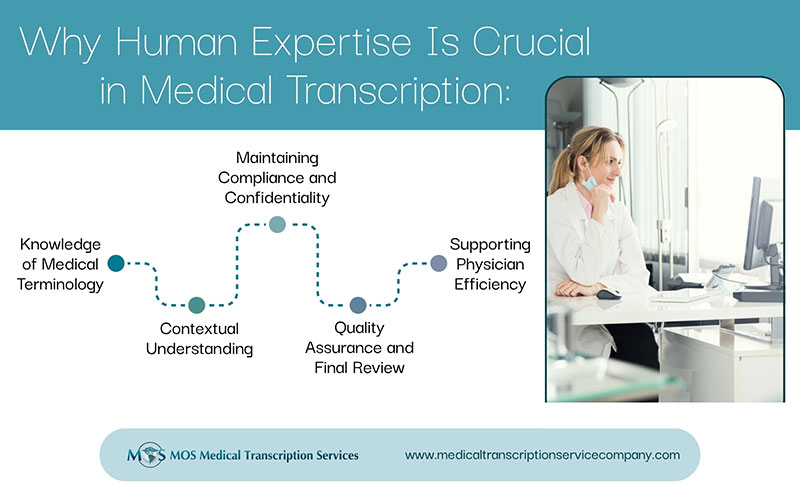 A warm and solid patient – doctor relationship is essential to ensure better patient care and win the trust of patients. Nowadays with the implementation of EHR, most doctors are tied down with documentation work which would be better handled by a medical transcription company providing electronic health record integrated transcription service. Providers need to ensure that their patients are comfortable and confident that the care provided to them is optimal – both vital to build a positive relationship with the patients. In the healthcare industry the need for transparent communication between doctors and their patients is essential for quality care and good health outcomes. Treating a patient with respect helps them to communicate well, and enable the provider to engage with them even outside of the hospital settings. A doctor should be a good listener too. When the doctor’s ability to listen to patients is limited, they can miss crucial health cues and misdiagnose illnesses. Hence it is important to engage with patients, exchange information and build a good rapport.
A warm and solid patient – doctor relationship is essential to ensure better patient care and win the trust of patients. Nowadays with the implementation of EHR, most doctors are tied down with documentation work which would be better handled by a medical transcription company providing electronic health record integrated transcription service. Providers need to ensure that their patients are comfortable and confident that the care provided to them is optimal – both vital to build a positive relationship with the patients. In the healthcare industry the need for transparent communication between doctors and their patients is essential for quality care and good health outcomes. Treating a patient with respect helps them to communicate well, and enable the provider to engage with them even outside of the hospital settings. A doctor should be a good listener too. When the doctor’s ability to listen to patients is limited, they can miss crucial health cues and misdiagnose illnesses. Hence it is important to engage with patients, exchange information and build a good rapport.
Here are some tips for physicians to follow during a patient encounter.
- Sometimes patients are afraid to discuss their problems openly. So doctors can initiate the conversation by asking friendly questions and then discuss the illness. This will help patients to ask more questions to the doctors about the illness and clarify their doubts easily.
- Request your patients to bring all the prescribed drugs, over-the-counter medicines, vitamins and supplements that they take, if it is a follow-up visit. Also make sure that they have their insurance cards and other necessary documents with them.
- In case of patients suffering from Alzheimer’s or psychiatric issues, make sure that they are accompanied by a family member so that they can understand the treatment plan correctly.
- In case of follow-up visits, make sure to keep yourself updated about the changes in the patient such as body weight, appetite, sleep, energy level etc.
- If the patient does not speak English or any other language familiar to you, then consider having an interpreter alongside who can understand and translate the instructions to the patient correctly.

- Make sure to collect feedback from the patients as feedbacks can help a physician take necessary steps to provide better service.
- Once the consultation is over, ask the patient to make a call ahead for booking or cancelling an appointment for future follow-ups.
There is no doubt that the more time a doctor gets to spend with his/her patients, the better will be the outcome. As mentioned at the outset, the medical documentation process which is a major time-consuming process can be outsourced to an established provider of medical transcription service. This will ensure that the physician gets more time for eye-to-eye contact with the patient, which is a great confidence booster for the patient. Another important thing is to minimize the response time when patients call your office. Your office staff has to be informed and trained in this regard so that you can prevent unhappy and frustrated patients.


